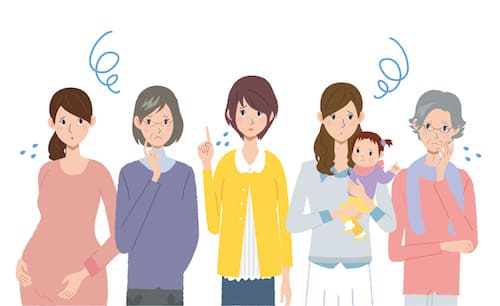November 19, 2018
By Trish Richert
If you or someone you know is experiencing a mental health, suicide or substance use crisis or emotional distress, reach out 24/7 to the 988 Suicide and Crisis Lifeline (formerly known as the National Suicide Prevention Lifeline) by dialing or texting 988 or using chat services at 988lifeline.org to connect to a trained crisis counselor. You can also get crisis text support via the Crisis Text Line by texting NAMI to 741741.
 About four years ago, while waiting to be called for an appointment, I had the good fortune to sit next to a woman who had been fundamental in starting our state’s chapter of NAMI. I had been looking for an opportunity to become involved in volunteerism. I wanted to do something to feel as though I was contributing to my community and making a difference. And there I was, sitting in a waiting room next to a woman who had devoted decades of her life to volunteerism for mental health education, advocacy and support. So, I decided right there to become a volunteer for NAMI.
About four years ago, while waiting to be called for an appointment, I had the good fortune to sit next to a woman who had been fundamental in starting our state’s chapter of NAMI. I had been looking for an opportunity to become involved in volunteerism. I wanted to do something to feel as though I was contributing to my community and making a difference. And there I was, sitting in a waiting room next to a woman who had devoted decades of her life to volunteerism for mental health education, advocacy and support. So, I decided right there to become a volunteer for NAMI.
It wasn’t until I attended training for my state’s adaptation of NAMI Family-to-Family that I realized mental illness was very much a part of my life. I was naïve to think that mental illness had nothing to do with me. My maternal grandmother had died by suicide following years of depression. My mother struggled with depression and social anxiety throughout her life. I myself had been diagnosed with depression and my teenage daughter as well.
Yet, I saw mental illness as something that happened to other people; This might sound contradictory, but I did not understand until my NAMI training that depression is classified as a mental illness. I would never have described my mother, my daughter or myself as “living with mental illness.” I can only shake my head now at my naivety. In retrospect, even as I trained to help others understand and cope with mental illness, my own stigma against the label was deeply ingrained.
With all I’ve learned at NAMI, I can’t help but reflect sadly on the life my mother lived. The youngest of six children, she was the only child still at home when her mother died by suicide in 1939. My mother was 17 years old at the time. She received no grief counseling or therapy of any kind, because those things just weren’t done then. She dropped out of high school, got a job and her own apartment, and became an instant adult. But she was never truly happy for any length of time.
My mother was a difficult person. It often seemed like she was incapable of unconditional love. She would refer to me as her favorite child when things were good between us and to my brother as her favorite when they were not. She was distrusting and a tad paranoid. I always understood this to be just one scar from the trauma of finding her mother dead by her own hand.
She lived to be 89. But throughout the decades, when she became particularly agitated, stressed, or angry, she missed her mother and wished for her presence. In the final weeks of her life, following two massive strokes, she often called out day and night for “Mama.” It was shocking for me to comprehend how something that happened 72 years earlier could have left such a profound emotional scar. I only fully recognize now how difficult her life must have been and how intensely she must have wrestled with that loss and sense of abandonment for decades.
I understand her so much better now than while she was living. I often reflect on how I was wrong to tell her that she had no reason to be depressed. Her life was good. She was financially comfortable and always lived in lovely homes. She never stopped grieving my father who died 16 years before her. Or her sister who died six years later. But, I would tell her, it’s been years, and you should be over your grief by now. Feeling the hole in your heart left by a deceased loved one never ends, but my mother swam in her grief and was unable to create a life that allowed any real joy for any length of time.
My heart aches for her, for her emotional pain and grief. I cannot undo the many ways I ignored her emotional fragility. But by sharing this story, perhaps someone else can come to understand the invisible havoc trauma wreaks on a person—even from years or decades earlier—and bring compassion, patience and love to that person.
Trish is a freelance editor and writer. Her business, Strike the Write Tone (www.strikethewritetone.com), offers manuscript assessment, editing, proofreading, blog and website content, and internet research services. She is the chair of the NAMI Maryville (TN) steering committee and serves as education-outreach coordinator, and press liaison.
Submit To The NAMI Blog
We’re always accepting submissions to the NAMI Blog! We feature the latest research, stories of recovery, ways to end stigma and strategies for living well with mental illness. Most importantly: We feature your voices.
LEARN MORE